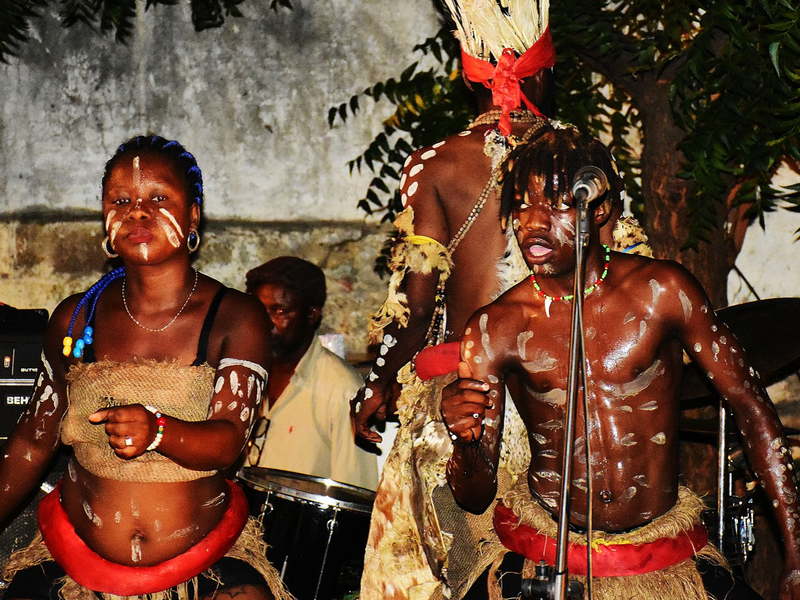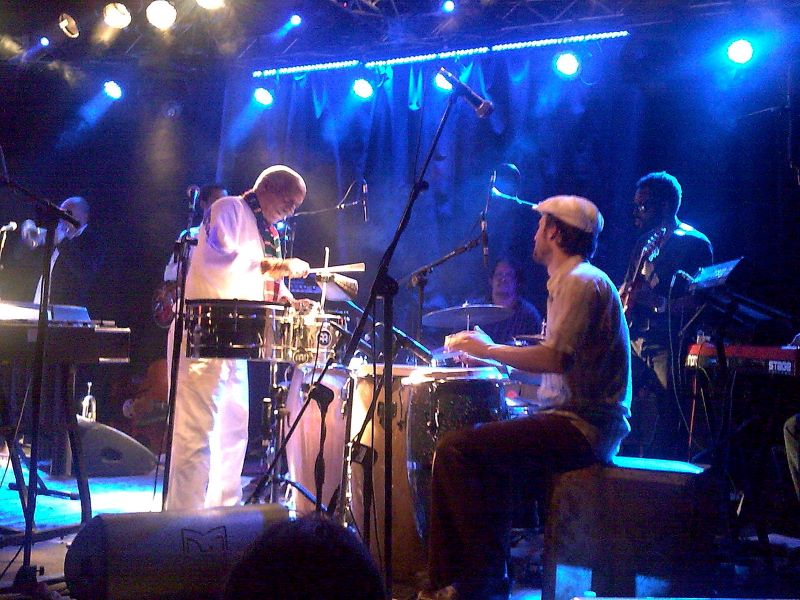(Angolan Singers. Image by Anatoly Tkachuk via Wikimedia Commons https://commons.wikimedia.org/wiki/File:Singers_from_Angola.jpg )
Happy Independence Day, Angola! On November 11th, 1975, this Southwestern African country gained independence from the Portuguese. Today we are exploring the globalized music and dance forms that the country has gifted to the world.
Angola is one of the six African countries that speak Portuguese. The culture of Angola is therefore a mixture of indigenous Angolan and Portuguese culture. During the TransAtlantic Slave Trade, many Angolans were brought to places like Brazil to work as slaves, so today, facets of Brazilian culture like capoeira and candomble are mixed with Angolan culture. Many Afro-Brazilians are also mixed with Angolan culture. Today, many Angolans migrate to Portugal, and they bring contemporary dance forms with them.
The Massemba dance of Angola, which is a traditional dance of the country, includes hip thrust movements that intend to imitate the act of procreation. Massemba formed the basis of Semba music and dance. Semba includes music forms that are intermingled with dance, and have multiple subforms. Semba is usually danced alone. Ballroom Samba or Samba De Gafieira, however, is a dance in Brazil with Angolan roots that is usually done with a partner.

(Woman and man dancing Kizomba. Image by Obe Images via Wikimedia Commons)
Kizomba, which means ‘fiesta’ in the Kimbundu language of Angola, is a dance form that evolved from the Semba and Zouk music styles and emerged in the 1980s. Kizomba is a sensual, two-person dance style that usually involves hip-swaying, forward and backward steps, and circular movements. Kizomba is danced globally, notably in countries like Ghana, London, Belgium, France, Spain, Egypt, Switzerland, and Serbia. There are Kizomba congresses in Spain, Portugal, the UK, and France.

(Luanda, Angola. Image by David Stanley via Wikimedia Commons )
Kuduro is a form of Kizomba that developed in Luanda, the capital city, in the 1980s. The genre is characterized by techno moves mixed with Kizomba moves. Other versions of Kizomba include the Ventoinnha, Quadrinha, and Tarraxinha.
Afro House music is dance music that originated in South Africa. It blends elements such as bass lines, electro-pop sounds, and more. Angola is heating up the scene with Afro House music. Neru Americano, an Angolan, Portugal-based group is making major moves on the Afro House scene, with songs like “Tic Taa”. Listen to this banger here.
Works Cited
https://www.britannica.com/place/Angola
https://www.redbull.com/int-en/music/the-influence-of-africa-on-brazilian-music
https://www.untitledmusic.org/what-is-afro-house.html





